Souvenirs sent home to his sweetheart meant trouble for one Australian soldier in the months before the Japanese surrender during World War II, as revealed in court martial records held by the National Archives.
The instrument of surrender of Japanese forces in New Guinea, New Britain, New Ireland, Bougainville and adjacent Islands was signed at Rabaul on 6 September 1945.
Conflict between Allied and Japanese forces was waged in treacherous conditions in the mountains and jungles of New Guinea and Bougainville from 1942 to 1945. Towards the end, Japanese forces were demoralised and suffering from lack of food and supplies.
Allied Forces used all available means to persuade Japanese forces to surrender in the months prior to September. Printed leaflets, with an Allied Forces message, were loaded into 25-pounder shells and fired towards Japanese positions.
The message on one side was intended for Allied soldiers to ensure correct treatment of the enemy. Written in English, it read, ‘The bearer has ceased resistance. Treat him well in accordance with international law. Take him to the nearest Commanding Officer.’
On the other side of the leaflet was a message in Japanese, aimed at reassuring enemy soldiers that they would be treated with respect. A translation of the message reads:
To all soldiers of the Japanese Army – We need not explain the situation. Any further bloodshed is useless. We wish to treat you kindly. There is no shame in coming to our lines and receiving emergency medical treatment under the Geneva Convention. You will be taken to join the several hundred Japanese soldiers already accommodated in Australia.
Photographs showing Japanese soldiers in good health and receiving water from Australian army personnel illustrated this message.
This surrender leaflet is one of two on a file in the National Archives’ collection which have survived due to the actions of a court-martialled Australian soldier. The leaflet was recently rediscovered amongst the records of the Attorney-General’s Department.

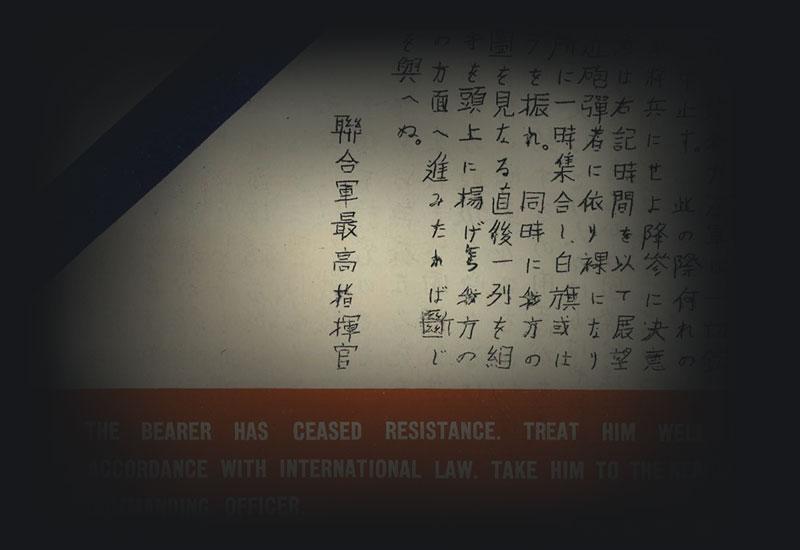
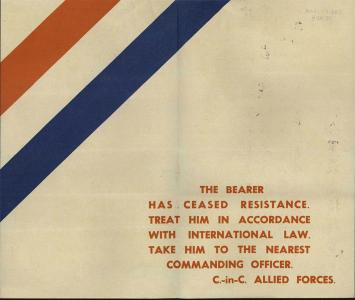
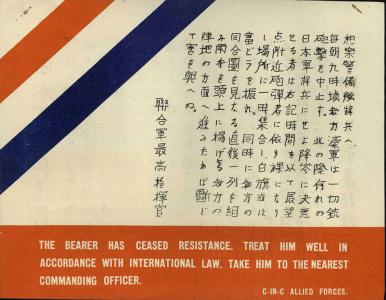
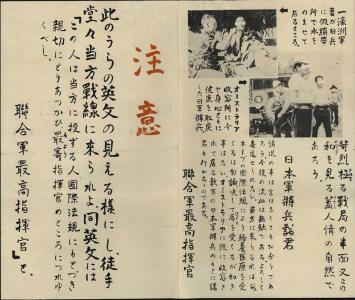
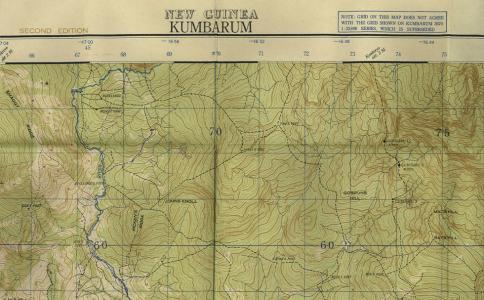
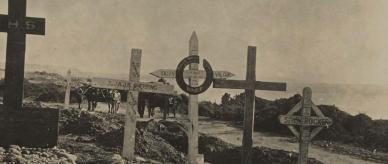

![Pencil drawing: WRAN driver standing beside her utility vehicle [ute].](/sites/default/files/styles/feature_item/public/2020-04/th-feature-blog-rex-julius-9544589.jpg?h=8c713433&itok=PAahEwXK)